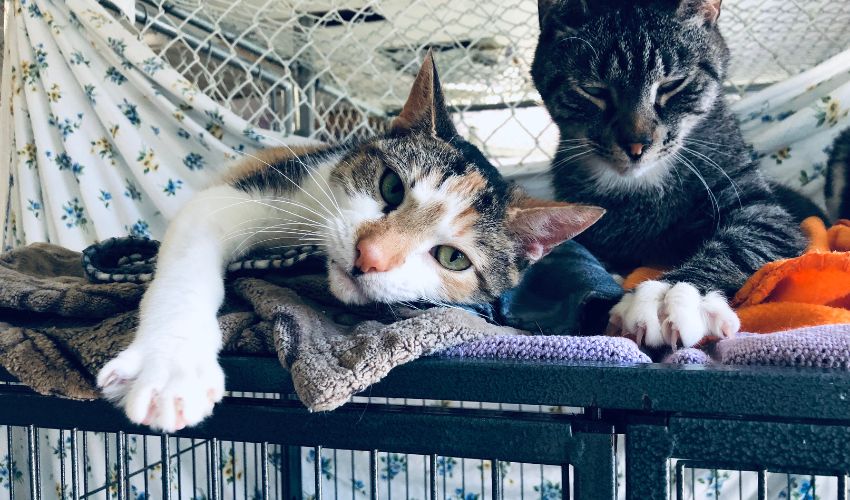The skin, the largest organ in a pet’s body, is not immune to the development of tumors. Recognizing and preventing common skin tumors in dogs and cats is crucial for early intervention and optimal health. In this comprehensive guide, we will explore the landscape of skin tumors, delve into their recognition, and provide practical tips for pet owners to safeguard their furry companions from these potential health concerns.
Understanding Skin Tumors:
Types of Skin Tumors:
Skin tumors in dogs and cats encompass a diverse range, including benign growths, malignant tumors, and various neoplastic conditions. Common types include lipomas (benign fatty tumors), mast cell tumors, melanomas, squamous cell carcinomas, and histiocytomas. Each type presents distinct characteristics, requiring tailored approaches to diagnosis and treatment.
Risk Factors:
Various factors contribute to the development of skin tumors in pets. Breed predispositions, genetic factors, exposure to environmental carcinogens, and age play roles in tumor formation. Understanding the potential risk factors allows pet owners to be proactive in recognizing symptoms and implementing preventive measures.
Recognizing Skin Tumors:
Lump and Bump Inspection:
Regularly inspect your pet’s skin for any new lumps, bumps, or growths. Run your hands over their body, paying attention to areas with thinner fur, such as the abdomen and ears. Any unusual or rapidly growing masses should prompt a visit to the veterinarian for a thorough examination.
Changes in Skin Color and Texture:
Monitor your pet’s skin for changes in color or texture. Skin tumors may manifest as alterations in pigmentation, redness, or changes in the texture of the skin. Be vigilant about any irregularities, especially if these changes occur suddenly or exhibit signs of inflammation.
Persistent Itching or Scratching:
Skin tumors can sometimes cause discomfort, leading to persistent itching or scratching. If you observe your pet engaging in frequent scratching or notice areas of the skin becoming irritated, it’s essential to investigate the underlying cause, which may include the presence of a skin tumor.
Open Sores or Ulceration:
Malignant skin tumors, such as mast cell tumors or squamous cell carcinomas, may lead to the development of open sores or ulceration. These areas can be prone to infection and require prompt veterinary attention. Regularly check your pet’s skin for any signs of wounds or unexplained lesions.
Preventing Skin Tumors:
Routine Veterinary Check-ups:
Scheduled veterinary check-ups are fundamental for preventive care. During these visits, your veterinarian can conduct thorough skin examinations, identifying any potential abnormalities or early signs of skin tumors. Regular check-ups also provide an opportunity for vaccinations and discussions about preventive measures tailored to your pet’s health.
Balanced Diet and Nutrition:
A balanced and nutritious diet is integral to overall pet health, including skin health. Providing a diet rich in essential nutrients, antioxidants, and omega-3 fatty acids supports the immune system and may contribute to reducing the risk of skin tumors. Consult with your veterinarian to determine the most suitable diet for your pet’s individual needs.
Maintaining a Healthy Weight:
Obesity is a risk factor for various health issues, including the development of certain tumors. Maintaining a healthy weight through a balanced diet and regular exercise supports your pet’s overall well-being and may contribute to reducing the risk of skin tumors.
Environmental Protection:
Protect your pet from environmental factors that may contribute to skin tumors. Limit their exposure to excessive sunlight, especially for pets with light-colored fur or thin coats. Consider using pet-safe sunscreens, and provide shaded areas when your pet is outdoors.
Parasite Prevention:
Regular parasite prevention is crucial for preventing skin-related issues. Fleas and ticks can irritate the skin, potentially leading to the development of secondary conditions. Administer veterinary-recommended flea and tick preventatives to safeguard your pet from these external parasites.
Avoiding Harmful Substances:
Be mindful of potential carcinogens in your pet’s environment. Avoid exposing them to tobacco smoke, harmful chemicals, and other environmental toxins. Choose pet-safe cleaning products, and keep them away from areas where pesticides or herbicides have been applied.
Spaying/Neutering:
Spaying or neutering your pet, especially before their first heat cycle, may reduce the risk of certain tumors, including mammary tumors. Consult with your veterinarian to determine the most appropriate timing for spaying or neutering based on your pet’s breed, age, and overall health.
Genetic Screening:
For certain breeds predisposed to specific skin tumors, genetic screening may provide valuable insights. Consult with your veterinarian to explore genetic testing options that can help identify potential risks early on, allowing for proactive preventive measures.
Regular Grooming and Hygiene:
Regular grooming not only keeps your pet’s coat clean and healthy but also allows for early detection of any skin abnormalities. Pay attention to changes in skin texture, lumps, or areas of irritation during grooming sessions. Promptly address any concerns with your veterinarian.
Educating Yourself:
Stay informed about your pet’s breed-specific tendencies and potential health risks. Understanding the factors that may contribute to skin tumors allows you to be proactive in preventive care. Attend educational events, engage with veterinary resources, and consult with your veterinarian to enhance your knowledge about your pet’s health.
Conclusion:
Recognizing and preventing common skin tumors in dogs and cats is a proactive approach to ensuring the well-being of our furry companions. By staying vigilant, implementing preventive measures, and maintaining regular veterinary check-ups, pet owners become active participants in their pet’s health journey. A combination of awareness, a balanced lifestyle, and a commitment to preventive care forms the foundation for a happy and healthy life for our beloved dogs and cats.
















